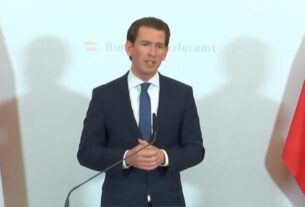Wizz Air is the first to use technology controlled by virtual reality in its pilot training, the airline told MTI.
According to the announcement, Wizz Air uses the cloud-based Mobile Airbus Training Experience (MATe) Suite package developed by Airbus and the Virtual Procedure Trainer (VPT) technology in its pilot training.
MATe Suite is a cloud-based service platform that includes e-training and exams tailored to various pilot categories. VPT’s innovative software trains students using a virtual cockpit, allowing them to get to know Airbus aircraft in-depth and to practice the most important operations at a skill level.
The two new training solutions – the introduction of which was also approved by the Civil Aviation Supervisory Authority Department – provide an opportunity to acquire even more comprehensive knowledge in the Wizz Air training center and support the pilots participating in the type training course.
According to Wizz Air’s plans, it will train an additional 4,000 pilots and first officers by 2030, as well as expand its fleet with 300 new Airbus A321neo and a long-range A321XLR aircraft.
It was recalled that Wizz Air opened its first training center in Budapest in 2013, with an A320 full flight simulator and classrooms, and then in 2018 created a second institution in the capital. In the training centers, three A320 full aircraft simulators, on-board evacuation and fire protection training are available to student pilots. This year, the airline is establishing a new training center in Rome.
Wizz Air also reported to MTI that they train more than 200 new pilots every year, and in the last 12 months, almost 90 students obtained their qualifications in Hungary.
They added that more than 2,600 pilots work for Wizz Air, and the airline’s fleet currently consists of 206 aircraft.
According to Wizz Air’s previous statement, revenue increased by 134 percent to 3.896 billion euros in the business year that ended on March 31 last year, while passenger traffic increased by 88 percent to 51.072 million. Earnings before interest, taxes and depreciation (EBITDA) reached 134.3 million euros, a loss of 23.3 million euros was recorded in the previous business year. The company’s net loss decreased from 642.5 million to 535 million euros in 2021/2022.

















